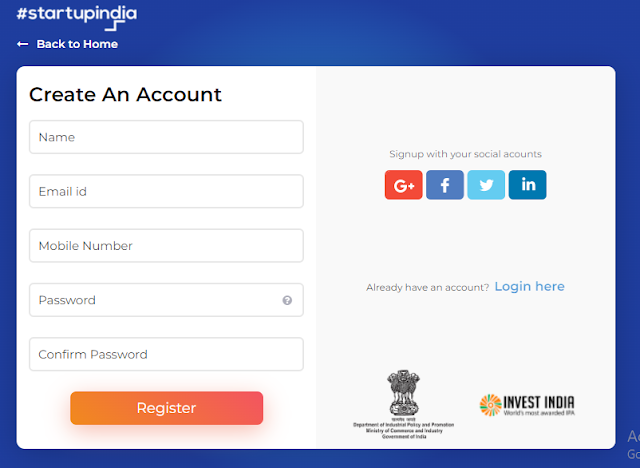A Comprehensive Guide on How to Register a Startup in India
The startup ecosystem in India has witnessed remarkable growth in recent years, with a surge in innovative ventures and entrepreneurs looking to make their mark. Registering a startup in India is the first step towards turning your business idea into a reality.
In this comprehensive guide, we will explore the entire process of startup registration in India, demystifying the legalities and procedures to inspire and empower aspiring entrepreneurs.
Starting a business in India can be a daunting task, but it is also an exciting opportunity. The Indian startup ecosystem is growing rapidly, and there are many government initiatives in place to support startups.
If you are thinking of starting a startup in India, the first step is to register your company.
There are two main ways to register a startup in India:
Private limited company:
This is the most common type of company registration for startups. It offers limited liability protection to the owners of the company.
Limited liability partnership (LLP):
This is a newer type of company registration that is becoming increasingly popular for startups. It offers the same limited liability protection as a private limited company, but it is also more flexible and can be easier to set up.
To register a company in India, you will need to file the following documents with the Registrar of Companies (ROC):
Memorandum of Association (MoA):This document sets out the basic terms and conditions of the company, such as its name, its registered office, and its objects.Articles of Association (AoA):This document sets out the rules and regulations of the company, such as its management structure and its voting rights.Incorporated Charge:This document is required if the company is taking any secured loans.Paid-up capital:This is the amount of money that the company has raised from its shareholders.PAN and TAN:These are the Permanent Account Number and Tax Account Number of the company.
You can file the documents for company registration online or through a lawyer. The processing time for company registration is typically 1-2 weeks.
Once your company is registered, you will need to obtain a few other licenses and registrations, such as:
GST registration:This is required if the company is selling goods or services that are taxable under the Goods and Services Tax (GST) regime.Professional Tax registration:This is required if the company is employing any employees.Trademark registration:This is required if the company wants to register its trademark.
Once you have obtained all the necessary licenses and registrations, you are ready to start your business!
Finally, you will need to open a bank account for your business. This will allow you to accept payments and make business transactions.
Register with Startup India
After that, the company needs to register as a startup. Everything is straightforward and done online. Go to the Startup India website and select the 'Register' button as displayed below.
Then, enter the OTP that was sent to your email along with additional information (such as the type of user, name, and startup stage, etc.) and press the "Submit" button. The Startup India profile is established after these facts are entered.
After creating a profile on the website, startups can apply for a variety of challenges, incubator/mentorship programmes, and acceleration programmes, as well as gain access to resources like learning and development programmes, government programmes, state policies for startups, and free services.
Here are some additional tips for registering a startup in India:
- Choose the right business structure for your needs. A private limited company or an LLP are the most common choices for startups.
- Get professional help with the registration process. A lawyer can help you file the necessary documents and ensure that your company is registered correctly.
- Do your research on the licenses and registrations that you need. The requirements can vary depending on the type of business that you are starting.
- Be patient. The registration process can take some time, so don't get discouraged if it takes longer than expected.
Here are some of the benefits of registering a startup in India:
- Limited liability protection: This means that the owners of the company are not personally liable for the debts and liabilities of the company.
- Access to government incentives: There are a number of government incentives available to startups in India, such as tax breaks and grants.
- Increased credibility: A registered company is seen as more credible by potential investors and customers.
- Easier to raise capital: It is easier to raise capital from investors when you have a registered company.
Starting a startup in India can be a challenging but rewarding experience. By following these tips, you can make the process a little bit easier.
If you are thinking about starting a startup in India, we encourage you to take the time to register your company. It is an important step that will protect you and your business.







No comments:
Post a Comment